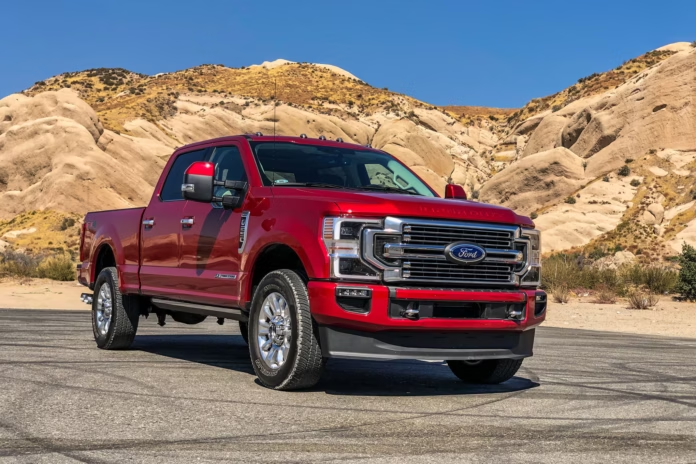
Critical Perspectives:
- Ford Motor Co. urgently seeks retrial after a historic $2.5 billion verdict in a Georgia rollover fatality, citing jury prejudice linked to a previously vacated case.
- Starbucks contests a debated $50 million verdict awarded in California over hot beverage burns, sparking intense public and legal debate.
- Growing national concern over increasingly large punitive damages raises critical questions about fairness, jury impartiality, and broader economic implications.
By Samuel A. Lopez – USA Herald
The American justice system delivered two dramatic and controversial verdicts recently, placing major corporate defendants Ford Motor Company and Starbucks Coffee Company at the center of heated discussions around punitive damages, jury impartiality, and economic fairness.
In an unprecedented courtroom outcome, Ford Motor Co. was slapped with a staggering $2.5 billion punitive damages verdict in a high-stakes wrongful death case involving a tragic rollover crash. Herman and Debra Mills lost their lives in 2022 when their Ford F-250 Super Duty truck rolled over, with jurors deciding the truck’s roof was defectively designed, leading to fatal injuries.
Ford immediately mounted an appeal, arguing significant jury misconduct had prejudiced the trial. The automaker claims that jurors improperly considered a prior, now-vacated $1.7 billion verdict from a similar rollover incident, despite explicit court instructions to disregard it. Ford presented compelling evidence, including juror testimonies revealing that discussion of the previous case significantly impacted deliberations.
According to court documents, “Juror 36” explicitly stated that knowledge of the earlier verdict unquestionably influenced the jury’s punitive decision. Another juror corroborated this claim, prompting Ford to demand either a retrial or a substantial reduction in damages. Ford argued that scientific evidence clearly demonstrated the Mills’ deaths resulted primarily from the frontal collision impact, not from roof failure.
Legal experts have emphasized the difficulty of Ford’s challenge. Georgia appellate attorney Scott Key commented, “While Ford has a strong factual basis for appeal, proving juror misconduct is extremely challenging, particularly due to the confidential nature of jury deliberations.”
Legal analyst Madeline Summerville added that Ford faces a significant hurdle: “Courts rarely penetrate jury deliberations unless clear misconduct can be conclusively proven. This appeal could set important precedents regarding how juries deliberate and the limits of punitive damages.”
Meanwhile, Starbucks confronts a controversial $50 million verdict awarded to Mr. Garcia, a delivery driver severely burned by hot tea spilled at a Starbucks drive-through in Los Angeles. Despite Starbucks proposing a settlement of $7.5 to $10 million, the jury awarded damages far exceeding expectations.
My initial reporting ignited significant public outcry questioning the scale of this award. Comments from readers frequently expressed disbelief, with one particularly vocal observer stating, “What? Did he lose a limb or something?”Critics widely described the $50 million verdict as disproportionate, labeling it “outrageous” and detrimental to businesses at large.
At trial, Starbucks contended that Garcia’s complications were heavily influenced by his pre-existing diabetic condition. Yet, jurors held Starbucks entirely liable.
Jaci Anderson, Director of Corporate Communications for Starbucks Coffee Company, reached out to USA Herald, providing the following statement:
“We sympathize with Mr. Garcia, but we disagree with the jury’s decision that we were at fault for this incident and believe the damages awarded to be excessive. We plan to appeal. We have always been committed to the highest safety standards in our stores, including the handling of hot drinks.”
Both Starbucks and Ford’s cases underscore a critical national debate about the appropriateness of punitive damage awards. Legal and economic analysts alike express concerns over increasingly large jury awards, cautioning they may inadvertently cause economic harm, reduce corporate investment, and increase operational costs—ultimately passed onto consumers.
“Punitive damages should deter irresponsible corporate conduct but not jeopardize economic stability,” explained Scott Key. “These massive awards, if unchecked, may discourage innovation and growth, harming businesses and consumers alike.”
As courts deliberate these pivotal cases, their outcomes will reverberate far beyond their immediate circumstances, reshaping how American businesses operate and how jurors approach their profound responsibilities.
Case citation: James Brogdon et al. v. Ford Motor Co., case number 4:23-cv-00088, in the U.S. District Court for the Middle District of Georgia.
For detailed insights and analysis without legal jargon, join my Patreon community, Legal Insights and Strategies by Samuel Lopez.


